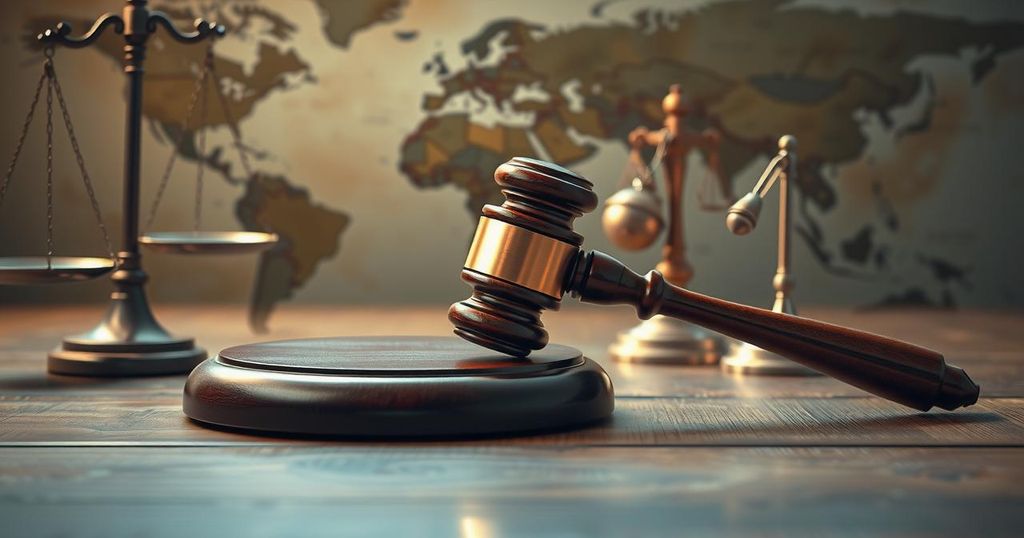The UN has released a report implicating Bangladesh’s former government in systematic violence against protesters, warning these actions may constitute crimes against humanity. The inquiry highlights extrajudicial killings, torture, and repression carried out to maintain political power. The report calls for accountability and a comprehensive process to address these serious human rights violations.
GENEVA: The United Nations has attributed systematic attacks and killings of protesters to Bangladesh’s former government, warning that these acts might constitute “crimes against humanity.” The findings stem from a fact-finding inquiry focusing on events from July 1 to August 15 of the previous year, during which then-Prime Minister Sheikh Hasina’s administration engaged in extensive repression amid protests against her regime.
In its report, the UN indicated it has “reasonable grounds to believe” that crimes such as murder, torture, and unlawful imprisonment occurred during this time. The inquiry revealed that the government, along with the Awami League party and state security agencies, executed a systematic crackdown aimed at maintaining power.
Former Prime Minister Hasina, now 77, reportedly fled to India, evading arrest warrants related to charges of crimes against humanity. The investigation was prompted by a request from interim leader Mohammed Yunus, resulting in a team of experts evaluating testimonies and documentation provided by victims, witnesses, and rights defenders, totaling over 230 interviews.
The inquiry concluded that security forces were instrumental in suppressing protests, which began over civil service job quotas but evolved into broader demands for Hasina’s resignation. It estimates that around 1,400 individuals may have died during the 45-day period of unrest, with the majority reportedly killed by security forces, including a notable percentage of children.
UN rights chief Volker Turk stated that the former government’s response was a “calculated and well-coordinated strategy” to quash dissent. Reports indicate that extrajudicial killings, considerable arbitrary detentions, and torture were systematically executed under the guidance of political leaders and senior security personnel.
The inquiry documented instances of police brutality, including the deliberate targeting of unarmed protesters and gender-based violence discouraging women’s participation in protests. Despite ongoing protests, there were also mentions of retaliatory violence from demonstrators against police and supporters of the Awami League.
Turk emphasized the significance of accountability and justice for Bangladesh, asserting the need for a truthful and comprehensive approach to address the grievances and human rights violations from that tumultuous period. He argued that a process of healing and redress is essential to ensure such violations do not recur.
The findings from the UN’s inquiry highlight grave human rights violations committed by the former Bangladeshi government during its crackdown on protests. With significant evidence of extrajudicial killings and widespread violence, the report calls for accountability and a process of healing in order to prevent future atrocities. The international community is urged to support efforts towards justice and the establishment of a truthful narrative regarding these past abuses.
Original Source: www.arabnews.com




